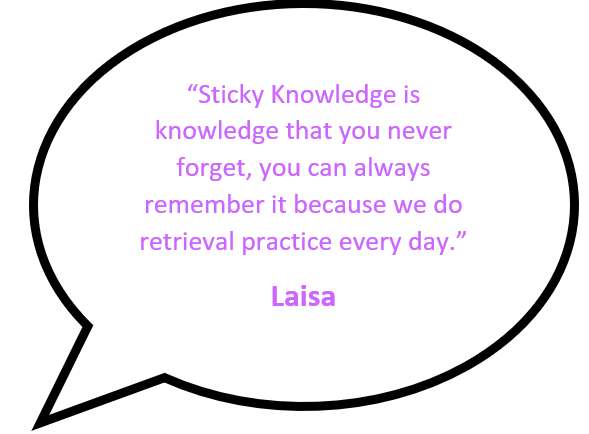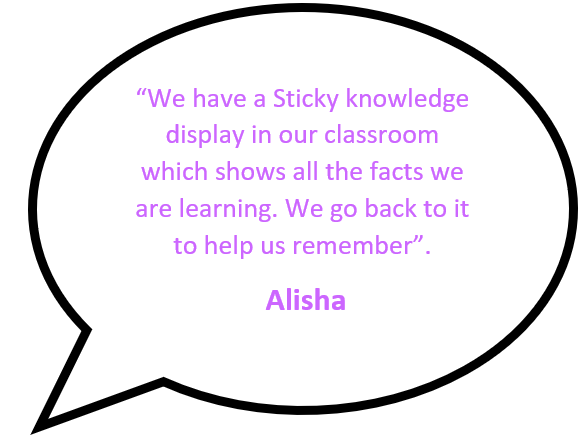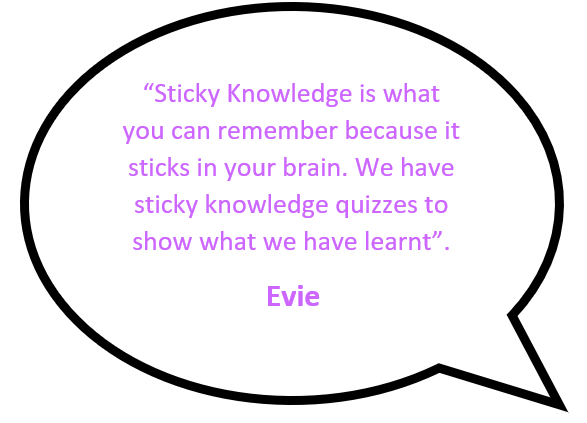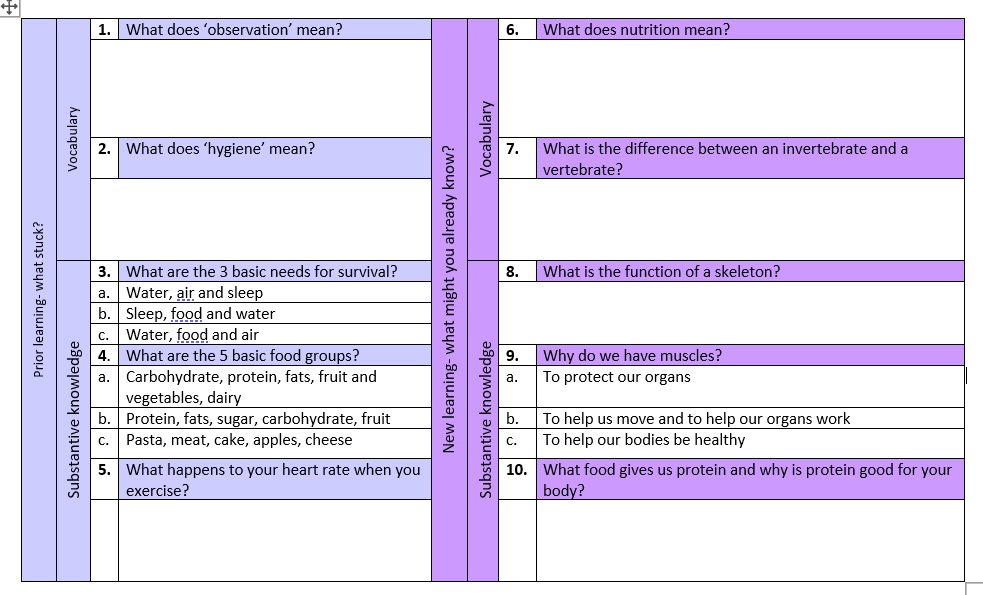Sticky Knowledge
At Nottingham Academy we have decided on the ‘invaluable knowledge’ that we want our pupils to know as the content of our curriculum. We call this our 'Sticky Knowledge'. We want our children to make excellent progress across all areas of the curriculum; this means knowing more and remembering more.
Learning happens when pupils make sense of ideas in relation to what they already know and therefore, we carefully structure our curriculum to ensure that links to prior learning can be made. As a school, we consider the science behind how we learn and implement various strategies in order for children to transfer knowledge from their working memory to their long-term memory. We use retrieval practice as a useful revision and effective learning technique that helps in memory retention of key knowledge. In practice, teachers will plan for children to recap prior learning through various quick and active tasks, including quizzes, summarising and memory mapping. We know that everybody forgets things unless they revisit that information, so by using retrieval practice we are interrupting the process of forgetting. This supports children in ensuring that 'Sticky Knowledge' can stay with them forever.
Pupil voice:



Vocabulary breadth is related to academic success, and at Nottingham Academy we place a high emphasis on expanding pupil vocabulary through all curriculum areas. We explicitly teach tier 2 (cross-curricular) and tier 3 (subject specific) vocabulary in all subjects and support children to understand and use ambitious vocabulary. This is mapped out within each subject's Sticky Knowledge.
Our Sticky Knowledge documents outline what we want the children to know by the end of a unit of work. These will be sent home at the beginning of each unit of work to allow parents to support their children in continuing learning at home.
At the beginning of a unit of work, children take a Sticky Knowledge quiz which focusses on questions related prior learning and new knowledge the children will be taught. Teachers use children's responses to their 'prior learning' questions to plan to fill any gaps children may have within the current unit of work. Children then repeat the same Sticky Knowledge quiz at the end of the unit so that teachers can assess what knowledge has stuck and track the progress made within the unit.
Below is an example of one of our Sticky Knowledge and an example of one of our Sticky Knowledge quizzes:


